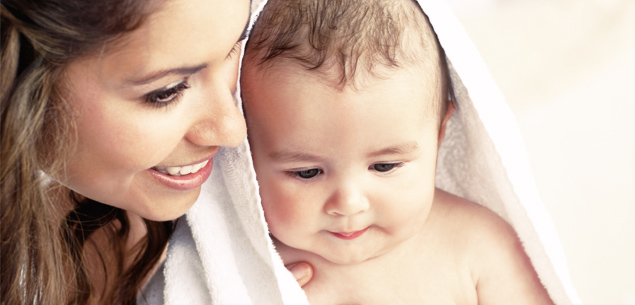For most of us, it’s only natural to want to do everything we can to give our children the best possible start in life. For many parents that means buying the best cots, prams and car seats and taking their child to swimming lessons or music appreciation classes before they can even talk.
But the best thing you can give your baby is love. Research shows the amount of nurturing children receive in their first few years can affect their brain development, and babies who don’t get the love and attention they need from their parents have smaller brains that may not fully develop.
US scientists have shown how brain development can vary by scanning the brains of two three-year-olds. One child’s brain appeared to be nearly half the size of the other – it turned out that child had been severely neglected by its mother. The child with the bigger brain will be more intelligent and more likely to develop the ability to empathise with others, say the researchers.
In contrast, the child with the smaller brain is more likely to become addicted to drugs and involved in violent crime. The images back up a study carried out earlier this year at Washington University School of Medicine in the US, in which the scientists found school-aged children whose mothers nurtured them early in life had brains with a larger hippocampus – a structure related to learning, memory and stress response.
They were smarter, able to learn more easily and dealt better with pressure. Children whose mothers were less empathetic had hippocampi that were, on average, 10% smaller. Study leader Dr Joan Luby said, “Having a hippocampus that is almost 10% larger just provides concrete evidence of nurturing’s powerful effect.”
While that study may have been the first to show an actual anatomical change in the brain can be related to how much affection you get as an infant, paediatric experts here in New Zealand have been telling us for years that it is crucial to nurture children in their first three years.
The Brainwave Trust has spent the last 14 years trying to raise public awareness about how a child’s experiences in their first few years affects their development. Its vision is that one day every child in this country will get the best start in life because parents and the community will understand and value the impact early experiences have on the developing brain and therefore on the success of society.
We are not born with fully wired brains. The pathways that allow neurons (nerve cells) to travel around the body passing on messages are still being formed after birth and are more likely to be better formed and work more efficiently if you are happy and getting stimulation. Without stimulation, the connections in the neural pathways will be weaker and in some cases may never develop.
In a presentation last year, Dr Simon Rowley of the Brainwave Trust stressed that babies need positive experiences to activate the neurons in their brain.
“When a child is nurtured, played with, sung to, cuddled and stimulated positively he or she will be programmed in a positive fashion. This type of experience sets a child up for life.”
Help your baby build a healthy brain
Make frequent eye contact with your newborn. Stare at them and they will stare back – they are learning to recognise your face and this contributes to building their memory.
Talk to them. Even if you are just chattering away about nothing, hearing your voice often helps with recognition and gets them used to speech patterns and rhythms.
Hold them and hug them. Stroke their skin and hold your baby against your bare skin. While you are doing this, new nerve pathways in their brains will be growing.
Sing to your child. It’s soothing and can help them overcome stress they may have about other things, such as hunger or suffering from wind. When they are a little older, lie on the floor with them and let them climb over you and touch you. They are exploring and learning.
When they get older and start talking, always respond to them. Ignoring them when they try to talk to you is a form of neglect.
For more information on the Brainwave Trust, visit its website: brainwave.org.nz




